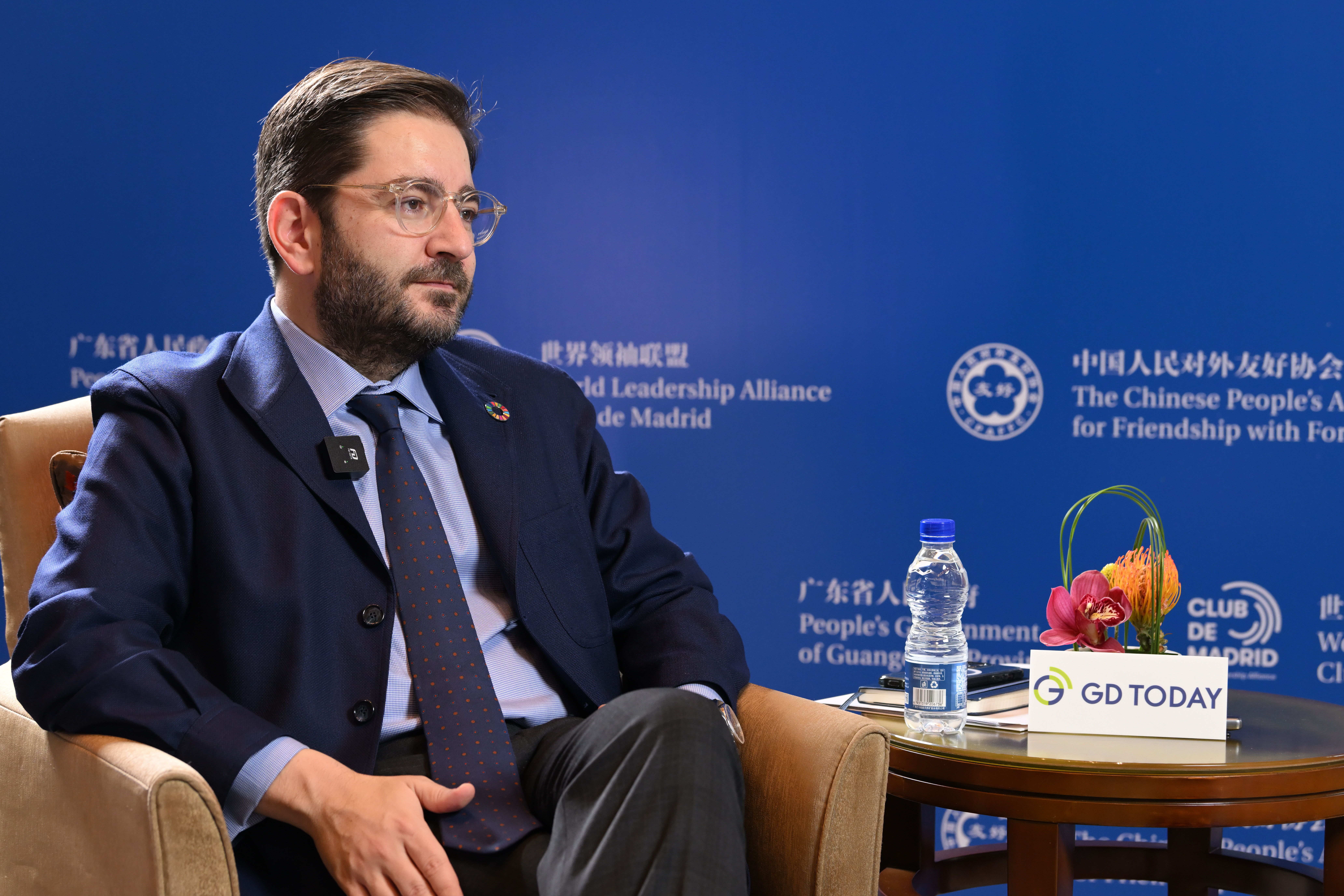The 24th China-EU Summit was held in Beijing from December 7 to 8. "This is a new moment and a new window for China and Europe to engage, but it needs to be built on a level playing field and on the mutual engagement of our companies and stakeholders," said Manuel Muñiz, dean of IE School of Politics, Economics, and Global Affairs, who served as state secretary at the Spanish Foreign Ministry from January of 2020 to July of 2021.
GDToday conducted an exclusive interview with Muñiz during the 2023 Imperial Springs International Forum, which was held from December 3 to 5 in Guangzhou, the capital city of south China's Guangdong province.
As this year marks both the 50th anniversary of establishing diplomatic ties between China and Spain and the 10th anniversary of the Belt and Road Initiative (BRI), Muñiz believes the cooperation between the two countries over the past decades has yielded positive outcomes, and both the BRI and China's visa-free entry policy for Malaysia and five EU countries have signaled China's commitment to openness.

Manuel Muñiz. (Photo by Steven Yuen/GDToday)
China-EU summit expected to signal enhanced mutual trust
GDToday: What signals do you think the China-EU Summit will release? What are your expectations for the Summit?
Muñiz: My hope is that out of this Summit, we can achieve a joint statement or declaration of partnership and engagement, particularly on economic matters.?
Spanish Prime Minister Pedro Sánchez Pérez-Castejón met with Chinese President Xi Jinping in March. Sánchez said that this is an opportunity for both Europeans and the Chinese, but it needs to be built on a level playing field and on mutual engagement of our companies and stakeholders. I hope that this is the message coming out of the Summit: the fundamental trust between the EU and China.
GDToday: On November 24, China announced visa-free entry for travelers holding ordinary passports from five EU countries, including Spain, France, Germany, Italy, and the Netherlands, from December 1, 2023, to November 30, 2024.
Muñiz: Yes. The policy was announced a week after I had applied for my visa. If you were quicker, I would not have needed it. [Laughing] But anyway, it is a good policy. It speaks to the idea of an open China and that China is committed to greater openness, more tourism and visits, and more engagement with the outside world.
The issue with the Europeans, though, is that we cannot reciprocate, because we are members of Schengen, so visa exemption needs to be a Schengen decision. I am sure the government is trying to work that out.
BRI shows China's commitment to openness
GDToday: How do you rate Spain-China cooperation under the Belt and Road Initiative?
Muñiz: It is very positive. It is not just the Belt and Road, but what the Belt and Road means. It signals China's commitment to openness, not only in terms of exports and investment abroad but also in terms of the openness of the Chinese economy to investment and the presence of international companies. In Spain, I think that this is the public's perception.
My worry is that we move to a much more fragmented international economy, where rather than investing or signing free trade agreements for engagement with one another, we are imposing trade restrictions or sanctions on others.
The International Monetary Fund (IMF) keeps track of annual restrictive measures to trade imposed by countries on one another. One decade ago, there were about 200 measures a year globally. Last year, the number reached around 3,000. So clearly globally, there is a process of pulling back from international trade and economic entanglement. This will have a negative impact on our economies because these measures are inflationary and will damage supply chains.
China-US relations, crucial for multilateralism
GDToday: What is your biggest concern about multilateralism in today's world?
Muñiz: The biggest question for multilateralism today is: are China and the US going to be capable of establishing a diplomatic relationship that is constructive when it comes to global challenges and shared challenges; or will the competition in the fields of economy, technology, and diplomacy derail the totality of China-US engagement, which in my mind, would be a big failure.
We just had the San Francisco meeting between Chinese President Xi and US President Biden. I think they are trying very clearly to avoid failure. And I think we will avoid it.
Reporter | Steven Yuen, Lydia Liu, Rofel Ding
Video editor | Qin Shaolong, Jimmy Guan
Cameraman | Jimmy Guan
Poster designer | Lu Lu
Editor | Olivia Yang, James










